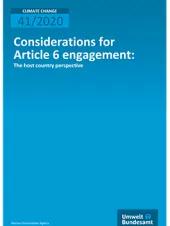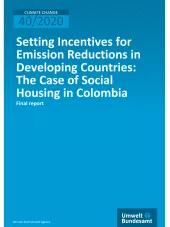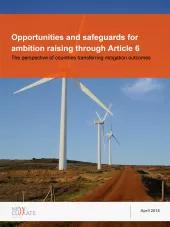Colombia faces an affordable housing deficit, rapid urbanisation pressure, and the need to improve energy efficiency to reduce emissions from the building sector while working towards longer term decarbonisation. To address these challenges, NewClimate Institute and Oeko Institute, supported by German Emission Trading Authority (DEHSt), developed a conceptual study for a market-compatible approach for mitigation action in the Colombian building sector. The project focused on the social housing sector with the goal of identifying activities that can generate an incentive for ambitious emission reductions and contribute to sectoral transformation, making part of the reductions available to investors in the form of internationally transferred mitigation outcomes (ITMOs) or other results-based sources of climate finance.
The project established a strong case for incorporating sustainable design and energy efficiency considerations into new residential development, especially in the social housing segment. A pilot net-zero energy building (NZEB) concept is proposed that could leverage the opportunities provided by Article 6 of the Paris Agreement. NewClimate Institute’s previous work has identified the need to make ambition raising central to Article 6 projects and reduce energy use/emissions from new buildings to net-zero (along with ambitious retrofitting programs) to limit the global temperature rise to 1.5C or well below 2C. An NZEB pilot could reduce emissions, contribute to the Paris Agreement’s long-term goals in the building sector, build capacity, contribute to technology transfer and offer a multitude of sustainable development co-benefits. Examples of NZEBs are scarce in Latin America and so far non-existent in Colombia. Experience gained from a pilot of this type could help inform broader policy change in the building sector. Considering the novel nature, transformation potential and Paris compatibility of an NZEB activity at the point of study completion, it could be argued that a host country such as Colombia could “afford” to sell carbon credits generated by such action and not risk undermining the achievement of its own climate change targets.
The project included two main outputs: a report on the theoretical framework of a pilot concept for Colombia, including a benchmarking approach for such an activity, and key policy recommendations to further transformational change towards decarbonisation. Findings from the research project also informed the development of a handbook to help potential host countries interested in engaging with Article 6 to navigate relevant considerations that they may face.






